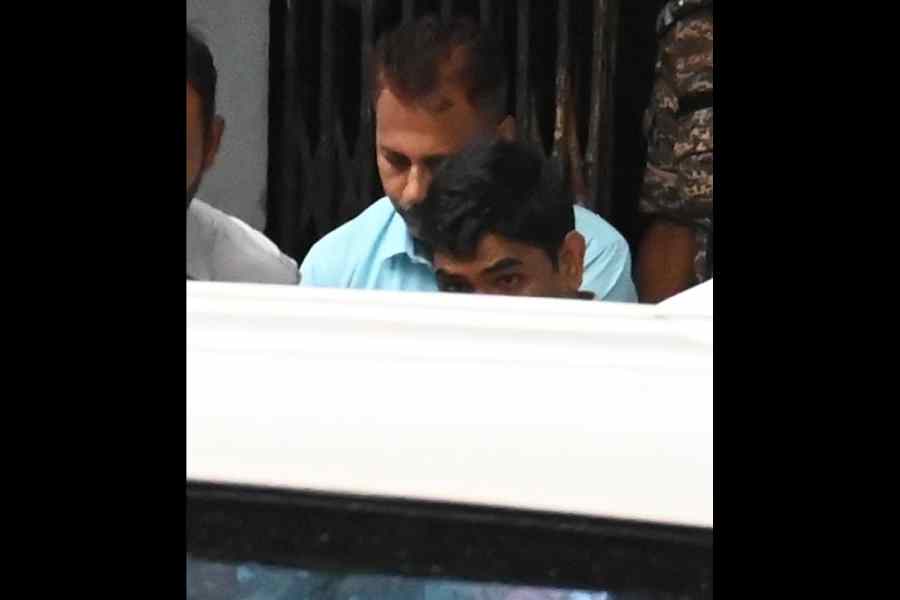Former RG Kar principal Sandip Ghosh’s replies were found “deceptive” during a polygraph test and a layered voice analysis, CBI sources investigating the August 9 rape and murder said on Monday.
“Ghosh was subjected to layered voice analysis and polygraph tests. We have received a report from the Central Forensic Science Laboratory, Delhi, which says his version was found deceptive on certain important developments relating to this case,” a CBI official said, without elaborating.
He clarified that the findings of such “lie-detector” tests are inadmissible as evidence in a court. They can, however, guide investigators in looking for admissible evidence or help corroborate other evidence found against the accused, he said.
“Ghosh has also remained evasive on several unanswered questions and sometimes gave conflicting statements during his interrogations on why he did not try to get an FIR lodged immediately after the discovery of the body,” another agency official said.
A polygraph test can help assess whether a suspect is lying by monitoring their psychological responses, heart rate, breathing pattern, sweating and blood pressure, agency sources said. A layered voice analysis can do so by analysing a suspect’s voice to detect signs of stress, anxiety, deception and emotional imbalance.
The junior doctors protesting in Calcutta against the August 9 rape and murder of a postgraduate trainee have accused Ghosh, who was principal of RG Kar Medical College and Hospital at the time, of attempting a cover-up to shield the guilty.
The CBI arrested Ghosh on September 14 in connection with the rape and murder and alleged evidence tampering, days after arresting him in a case relating to alleged financial irregularities at RG Kar on his watch.
According to the CBI, Ghosh had learnt of the discovery of the body at 9.58am on August 9 but did not inform the police or lodge a complaint immediately. He later got a “vague complaint” lodged through the then RG Kar medical superintendent-cum-vice principal, agency sources said.
The CBI has alleged that Ghosh got in touch with the officer in charge of Tala police station, Abhijit Mondal, at 10.03am on August 9 and with an advocate at 1.40pm while a case of unnatural death was registered only at 11.30pm.
On Saturday night, the agency arrested Mondal on the charges of tampering with evidence at the crime scene and later misleading the investigators.
“Mondal’s failure to register an FIR (immediately) and protect the scene of crime resulted in damage to vital evidence available at the crime scene,” a CBI official said.
“He allegedly tried to protect the accused, (civic volunteer) Sanjay Roy, and others who had unauthorised access to the scene of crime, which may have led to the tampering of evidence.”
Agency sources claimed that Mondal had arrived at the crime spot only an hour after receiving information about the incident at 10.03am on August 9.
Kolkata Police, who had arrested Roy on August 10, later handed him over to the CBI.
Calcutta High Court had transferred the probe to the CBI on August 13 and later the Supreme Court took suo motu cognisance of the horrific crime.
Ghosh had resigned a few days after the rape and murder amid the controversies swirling around him, only to be reappointed within hours as principal of the Calcutta National Medical College, the incident indicating the clout he enjoyed within Bengal’s health administration.
His reappointment had prompted the Supreme Court to ask: “When the conduct of the principal is under scrutiny, how was the same principal appointed as a principal of another college immediately?”










